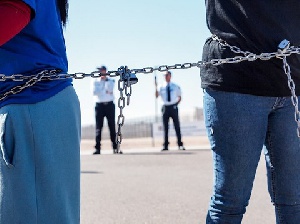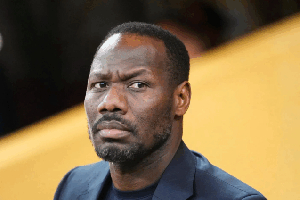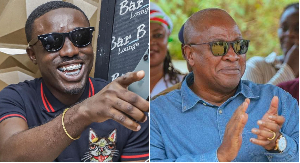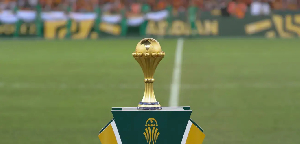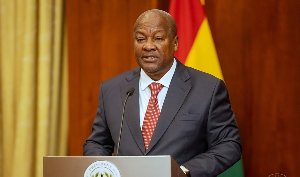The National Disaster Management Organisation (NADMO) has said it is not its responsibility to provide financial assistance to Ghanaian deportees.
This follows the deportation of some 54 Ghanaians from the United States of America back home. They arrived at the Kotoka International Airport on Wednesday November 2.
The deportees complained that the US authorities did not give them any money back home and as such have been left stranded in Accra.
Speaking to Class News on the role of NADMO in assisting deportees, Public Relations Officer (PRO) of the organisation, Kweku De-Graft said: “Giving financial support to deportees when they land in Ghana is not part of NADMO’s mandate”.
“The mandate of NADMO is to receive the deportees. Receiving them in terms of getting to know their ultimate destination, where they are going to end up, where they are going to stay so that going down the line, NADMO may be able to offer them other assistance to enable them integrate into the system,” he added.
The deportees refused to disembark from the plane that transported them back home when they arrived at the Kotoka International Airport.
They claimed the US officials were being hypocritical in their deportation as they were not treated with dignity while on board the plane en route to Accra.
Some of them, who spoke to Class 91.3FM’s Atiewin Mbillah Lawson on Wednesday said although their deportation had nothing to do with criminal issues, they were handcuffed and treated as criminals by the US authorities in Louisiana and even while on board the plane.
According to them, when they reached the Kotoka International Airport, the authorities attempted to take off the handcuffs to create the impression that they were treated with respect, an act they thought was hypocritical.
One of the deportees said: “They (US authorities) handcuffed us, they handcuffed us before we boarded the plane. That is why we say we are not getting down unless they allow us to get down with the handcuffs for everybody to see how they have been treating us. That is why we said no, we are not getting down… They called some immigration officers (at the airport) to come and talk to us but we said no we want to come down with the handcuffs on and so they said we should come down. They handcuffed us in the United States. My waist, hands and my legs were all cuffed. Both legs [were cuffed], so you cannot even walk, you cannot eat, you cannot do anything.”
Another deportee narrated: “We have been handcuffed from Monday to today, a lot of people here (Kotoka Airport) today saw it. If you think I am lying you can ask the people around. If you want to urinate you struggle in the handcuff before passing urine.”
Another disgruntled deportee indicated: “We all left Ghana to America to go and better our future, so we passed through Brazil to Colombia and some of us even died on the way… Now the people handcuffed us, they only gave us bread and water from morning till evening, so when we came here (Kotoka) a lot of the people were fighting them that: ‘You cannot deport us empty-handed; we need money to go home [with].’”
General News of Thursday, 3 November 2016
Source: classfmonline.com

